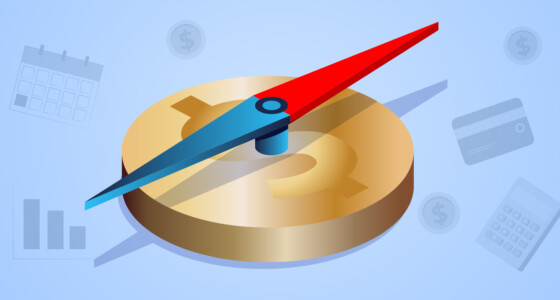

Have you ever calculated your expenses? If you haven’t, check out these statistics. An average Mumbai citizen spends around ₹351,204 per year or ₹29,267 per month excluding rent. A one-bedroom flat costs ₹22,246-₹41,047 extra, depending on the location.
If you want to become financially independent, keeping track of expenses is the first step. Those who regularly monitor and analyze their spending may find a way to eliminate unnecessary or insignificant costs and save up more. Here are some tips to control your finances.
Checking account statements regularly
First, you need to familiarize yourself with your spending on checking accounts and bank cards. Find out what you spend your income on each month. This will help you will gain control over your budget. After all, even at first glance, insignificant daily expenses can hit the wallet hard.
Categorizing expenses
Once you have analyzed your finances, you should divide them into categories. For example, they can be categorized into payments for loans, food, housing, utilities, and other expenses. This will help you discover unnecessary spending that can be reduced.
Some bank apps automatically sort your spending into categories without you having to do it yourself.
The costs themselves can be divided into three groups:
- Obligatory costs include payments on loans, rent, and taxes. This group cannot be reduced.
- Fixed costs are utilities and communication services, as well as any other constant monthly/weekly expenditures.
- Variable expenses like food, electronics, furniture, repairs, or vacations. For this group of expenses, it is recommended to create a separate budget to allocate a certain amount of funds.
Setting limits & sticking to them
For better control over your expenses, you should create limits. For example, eating out no more than three times a month, buying only the clothes you need, etc. Often, people make impulse purchases that they don’t really need.

Do not remove small pleasures from your life; just minimize them to an acceptable amount. Keeping track of expenses will help you stick to your limits and understand the amount of funds already spent over a certain period of time.

Using money management rules
In addition to limits, it is worth introducing special rules. Perhaps you have heard about the 30-30-40 system; in it, you invest 30% of your income, 30% goes to pay for housing and loans, and 40% goes towards food, transportation, and other lifestyle expenses. Such a system is good because you not only track your expenses but are also building additional income and a substantial emergency fund.
Another budget management method was created by Alexa von Tobel — the 50-20-30 one. The largest percentage of spending goes to the most basic and necessary expenses: housing, utilities, food, and transport. 20% of your income is invested. It can be through pension contributions, creating savings for a rainy day, or investing in securities. The remaining 30% is spent at your own discretion: for example, going to the movies, taking a vacation, and so on.
Using expense trackers
Another way to manage expenses is through expense-tracking apps. You can write down your expenses on the go; all you need is a smartphone. It is also worth paying attention to whether the app has a function for scanning and organizing bills. This is convenient and practical, as it automatically distributes your checks into categories and stores them in the app’s memory for reliability.
The right app will make this action simple and quick. Here are five expense trackers to look out for:
1. Wally
This is a handy app that has many different functions and options. Wally can also be useful if you share utilities with a roommate, as it keeps track of those expenses. You can either enter your expenses yourself or take a picture of receipts.
2. Mint
This app is considered to be one of the best in its category. It is free and packed with useful features: managing your investments, creating savings, and reducing your spending. However, Mint does not have a check scanning feature, and, unfortunately, it does not have access to some banks.
3. Personal Capital
This app is mostly popular among investors. This is because there are many convenient features for them: tracking the effectiveness of investments, reducing tax burdens, and testing assets in a recession simulator. But there are also disadvantages, including the inability to reconcile accounts and special restrictions on obtaining consulting services.
4. Expensify
It’s another handy app for managing your expenses. You can automatically import receipts into the app, receiving all the information in detail. In addition, it distributes receipts into categories and groups. The app itself can be used for other functions as well, such as keeping track of flight schedules. Sometimes the app takes a long time to scan receipts, in which case it is better to enter the information yourself.
5. Nerdwallet
Finishing the selection with a free, but no less useful app — Nerdwallet. It keeps track of your income and expenses, all completed transactions, and your capital. But the functionality of the application is still limited: for example, the restriction on transaction management and the need to link your account to verify transactions.
Summing up
Keeping a record of your expenses is necessary and convenient. You can truly control your cash flow and model it depending on the current situation. Using all these tools will positively affect your budget, making it more flexible and efficient.
What’s more, choosing the most suitable option for you, whether it is an app or a paper format, will make this action routine and basic, and therefore convenient.









